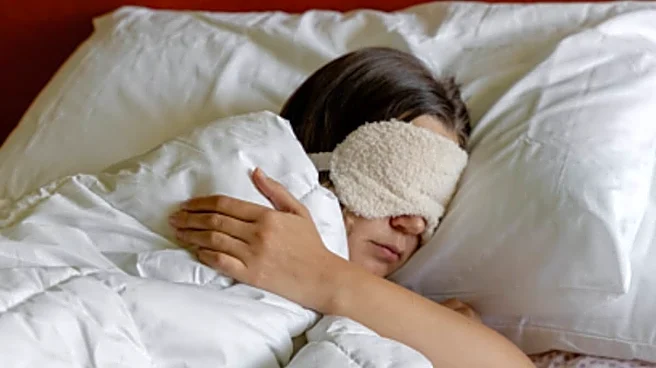Ever wondered why you wake up groggy even after eight hours of sleep, while someone else feels fresh after six? Turns out, it’s not just how long you sleep, but how you sleep that really matters.
A new study has found that our sleep patterns can reveal surprising insights about our mental and physical health — from stress resilience to brain function.
The large-scale study published in PLOS Biology found that there are five distinct sleeper profiles. Each sleeping style reveals unique insights into our mental, physical, and emotional health of a person.
Using brain scans, lifestyle data, and sleep journals from more than 770 healthy young adults, scientists discovered that sleep quality, habits, and brain activity patterns vary widely from person
to person.
The study revealed that two people sleeping the same number of hours could wake up feeling completely different, because not all sleep is created equal. Here are the five types of sleepers
1. Poor Sleepers
This group struggles to get a proper night’s rest — tossing, turning, and waking frequently. They report the lowest sleep satisfaction and the highest daytime fatigue. Brain scans show stronger connections between attention and sensorimotor networks, suggesting their brains work harder to compensate for lost rest.
Health clues: Anxiety, depression, irritability, and trouble concentrating.
What to do: Follow good sleep hygiene, try Cognitive Behavioural Therapy (CBT) for Insomnia (CBT-I), consult a sleep specialist, and manage stress effectively.
2. Resilient Sleepers
Despite experiencing stress, anger, or sadness, this group reports no major sleep problems. Their sleep seems protected from psychological distress — a sign of strong emotional or biological resilience.
Health clues: You handle emotional strain well and sleep soundly despite stress.
What to do: Keep an eye out for sleep dips during stressful periods. Maintain healthy coping habits like mindfulness or relaxation routines.
3. Sleep Aid Users
For this group, sleep doesn’t come naturally — they often rely on pills, supplements, or aids. While they enjoy strong social ties and emotional support, they tend to perform poorly on memory and spatial reasoning tests.
Health clues: Dependence on sleep aids, sluggish memory, or poor focus.
What to do: Limit sleep aids to short-term use, focus on behavioural strategies like CBT and relaxation, and consult your doctor for underlying causes.
4. Short Sleepers
They clock in fewer than 6–7 hours of sleep but still manage to function, or so it seems. The study found that short sleepers show higher aggression, poorer emotional regulation, and reduced cognitive performance. Brain scans also revealed stress-linked connectivity patterns.
Health clues: Quick temper, emotional ups and downs, reduced focus.
What to do: Aim to increase total rest through naps or consistent bedtimes and avoid caffeine or screens before bed.
5. Disturbed Sleepers (Frequent Awakeners)
This group experiences constant interruptions — waking up multiple times due to discomfort, bathroom trips, or breathing issues. They tend to have weaker cognition, higher anxiety, and even a greater risk of high blood pressure.
Health clues: Frequent awakenings, loud snoring, daytime fatigue, or memory issues.
What to do: Check for sleep apnea, adjust your environment (cooler temperature, darker room), and limit caffeine or screen exposure before bed.
Why This Study Matters?
This research goes beyond the basic “good” vs “bad” sleep labels. By analysing biological, psychological, and social factors together, it shows that your sleep profile can literally show up in your brain connectivity.
However, the authors note that this was a cross-sectional study, meaning it captured just one point in time. So, while certain sleep patterns are linked to mental health or brain differences, we can’t yet say one causes the other. The findings also apply mainly to young, healthy adults, so more research is needed across age groups.
Why You Should Pay Attention
Understanding your sleep type is like getting a window into your overall well-being. It can help you spot early signs of mood issues, memory lapses, or stress overload — and find the right fixes.
Sleep isn’t just about feeling refreshed. It shapes how your brain works, how you handle emotions, and how your body performs. And as this research shows, improving sleep quality could mean more than just adding hours — it could mean tailoring how you rest.
So, the next time you wake up tired despite eight hours of shut-eye, remember: your sleep story might be more complex than you think.












/images/ppid_a911dc6a-image-177082168040738048.webp)

/images/ppid_a911dc6a-image-177082152987036775.webp)
/images/ppid_a911dc6a-image-177082157569242217.webp)
/images/ppid_a911dc6a-image-177082162155797346.webp)
/images/ppid_a911dc6a-image-177082165123413151.webp)